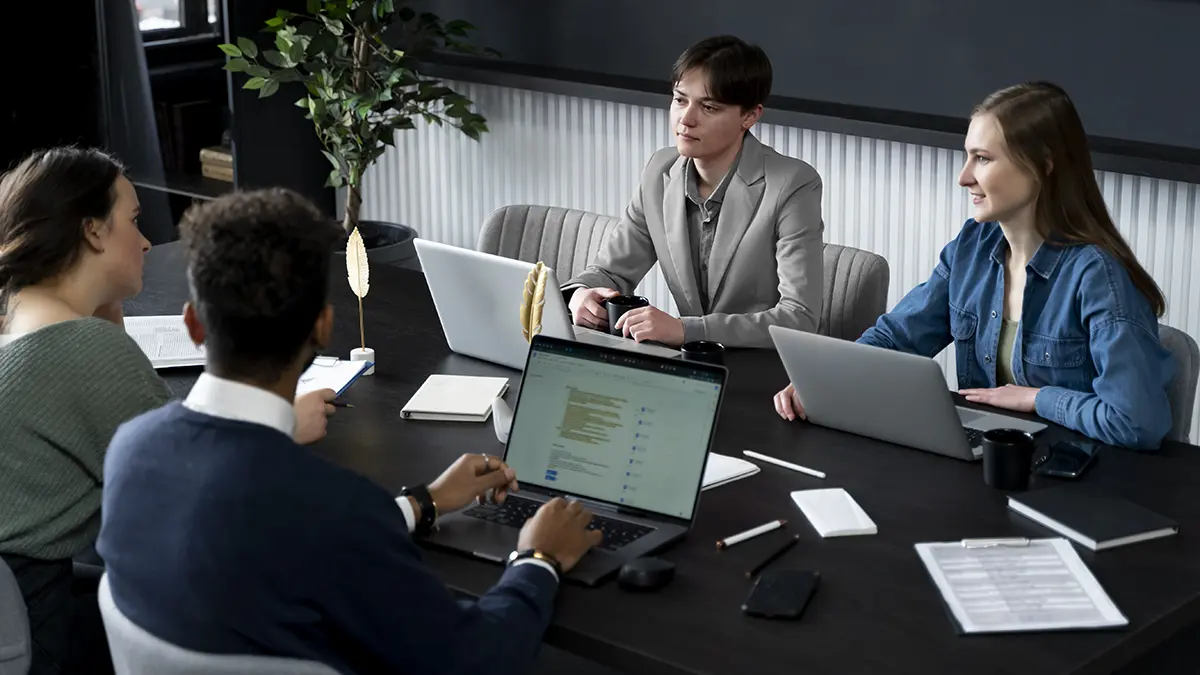Are you preparing for a job interview and feeling a mix of excitement and anxiety? Do you wonder how to make a lasting impression on your potential employer? You’re not alone! Job interviews can be daunting, but with the right preparation, you can walk in confidently and leave a remarkable impression. In this article, we’ll explore eight essential tips to help you ace your company job interview, ensuring you stand out among the competition.
Why Are Job Interviews Important?
Before diving into our tips, let’s take a moment to understand the significance of job interviews. They are often the deciding factor in whether you land the job. Interviews allow employers to evaluate not just your qualifications but also your personality, work ethic, and cultural fit within the organization. A successful interview can open doors to your dream job, while a poorly handled one can hinder your chances.
1. Research the Company Thoroughly
One of the most critical steps in preparing for a job interview is researching the company. Understanding the company’s mission, values, culture, and recent developments can give you a competitive edge.
Key Areas to Focus On:
- Company History: Know when it was founded and significant milestones.
- Products/Services: Familiarize yourself with what they offer and any recent launches.
- Industry Position: Understand their competitors and market position.
- Company Culture: Explore employee reviews on sites like Glassdoor to gauge the work environment.
Benefits of Researching:
- It shows your genuine interest in the company.
- You can tailor your answers to align with their values.
- It helps you prepare insightful questions for the interviewer.
2. Practice Common Interview Questions
While every interview is unique, certain questions tend to come up frequently. Practicing these can help you articulate your thoughts clearly and confidently.
Common Interview Questions:
| Question | Purpose |
|---|---|
| Tell me about yourself. | Assess your background and communication skills. |
| What are your strengths and weaknesses? | Understand your self-awareness and honesty. |
| Why do you want to work here? | Gauge your interest and alignment with the company. |
| Describe a challenging situation and how you handled it. | Evaluate your problem-solving skills. |
Tips for Practicing:
- Use the STAR method (Situation, Task, Action, Result) to structure your answers.
- Conduct mock interviews with friends or family.
- Record yourself to improve body language and tone.
3. Dress Appropriately for the Interview
First impressions matter! Your attire can communicate professionalism and respect for the opportunity. Dressing appropriately is crucial, and it varies depending on the industry.
Guidelines for Dressing:
- Corporate Jobs: Opt for formal business attire (suit and tie for men, blazer and blouse for women).
- Creative Industries: Business casual may be acceptable, but aim to look polished.
- Startups: Research the company culture to gauge the appropriate attire.
Additional Tips:
- Ensure your clothes are clean, pressed, and fit well.
- Pay attention to grooming and hygiene.
- Avoid excessive accessories or fragrances that might distract.
4. Be Punctual
Punctuality speaks volumes about your professionalism and respect for others’ time. Aim to arrive at least 10-15 minutes early for your interview.
Tips for Being Punctual:
- Plan Your Route: Use GPS to estimate travel time, accounting for potential delays.
- Prepare the Night Before: Lay out your clothes and pack your bag to avoid last-minute stress.
- Check-In Procedures: Familiarize yourself with building access protocols to avoid delays.
What to Do If You’re Late:
- Notify the interviewer as soon as possible.
- Apologize sincerely upon arrival and explain briefly without making excuses.
5. Exhibit Positive Body Language
Non-verbal cues are just as important as what you say. Your body language can convey confidence, enthusiasm, and professionalism.
Key Body Language Tips:
- Eye Contact: Maintain eye contact to show engagement and confidence.
- Smile: A genuine smile can create a welcoming atmosphere.
- Posture: Sit up straight and avoid crossing your arms to appear open and approachable.
- Gestures: Use hand gestures moderately to emphasize points, but avoid fidgeting.
Body Language Do’s and Don’ts:
| Do’s | Don’ts |
|---|---|
| Nod when listening | Slouch or lean back excessively |
| Offer a firm handshake | Overdo hand gestures |
| Mirror the interviewer’s tone | Avoid eye contact |
6. Prepare Questions for the Interviewer
An interview is a two-way street. Asking insightful questions not only shows your interest but also helps you assess if the company is the right fit for you.
Thoughtful Questions to Ask:
- Can you describe the company culture?
- What does success look like in this role?
- What opportunities are there for professional development?
- How does the team handle challenges?
Benefits of Asking Questions:
- Demonstrates your preparation and interest.
- Provides valuable insights into the company.
- Helps you decide if the job aligns with your career goals.
7. Follow Up After the Interview
Following up shows your appreciation and reinforces your interest in the position. It’s a chance to leave a positive impression after the interview.
How to Follow Up:
- Timing: Send a thank-you email within 24 hours of the interview.
- Content: Express gratitude for the opportunity, briefly reiterate your interest, and mention something specific discussed during the interview.
- Professional Tone: Keep the email concise and professional.
8. Stay Positive and Be Yourself
Finally, the best way to ace your interview is to be yourself. Employers appreciate authenticity and enthusiasm. While it’s essential to prepare and practice, remember to let your personality shine through.
Tips for Staying Positive:
- Focus on your achievements and strengths.
- Visualize a successful interview before you go in.
- Practice mindfulness or breathing exercises to reduce anxiety.
Embracing Authenticity:
- Share personal anecdotes that reflect your experiences and values.
- Be honest about your skills and areas for growth.
Frequently Asked Questions (FAQs)
Q1: What should I bring to the interview?
A1: Bring multiple copies of your resume, a list of references, a notebook, and a pen. If applicable, consider bringing a portfolio of your work.
Q2: How long should an interview last?
A2: Interviews typically last between 30 minutes to an hour, depending on the role and interview format.
Q3: What if I don’t know the answer to a question?
A3: It’s okay to admit if you don’t know something. You can say, “That’s a great question. I haven’t encountered that before, but I would approach it by…”
Q4: How can I research the interviewer?
A4: Use LinkedIn to view their professional background and interests. Look for any common connections or shared experiences that can help establish rapport.
Q5: Should I send a follow-up email even if I don’t hear back?
A5: Yes, it’s acceptable to send a polite follow-up email a week after the interview if you haven’t received a response. It shows continued interest.
Closing Note
Thank you for reading our guide on how to ace your company job interview! We hope you find these tips valuable as you prepare for your next big opportunity. At Job Nexus, we are dedicated to helping you succeed in your career journey. Don’t forget to join us on social media, sign up for push notifications, and subscribe to our newsletters for instant updates on jobs, courses, and internships. Together, let’s navigate your path to success!





